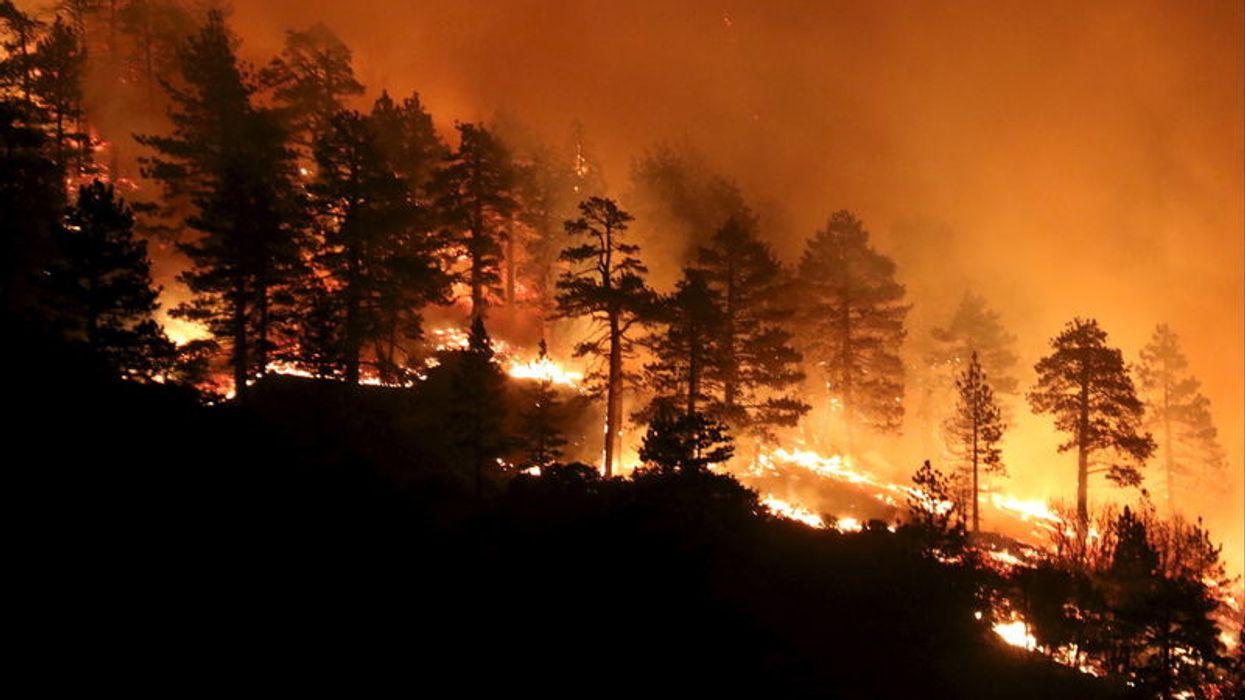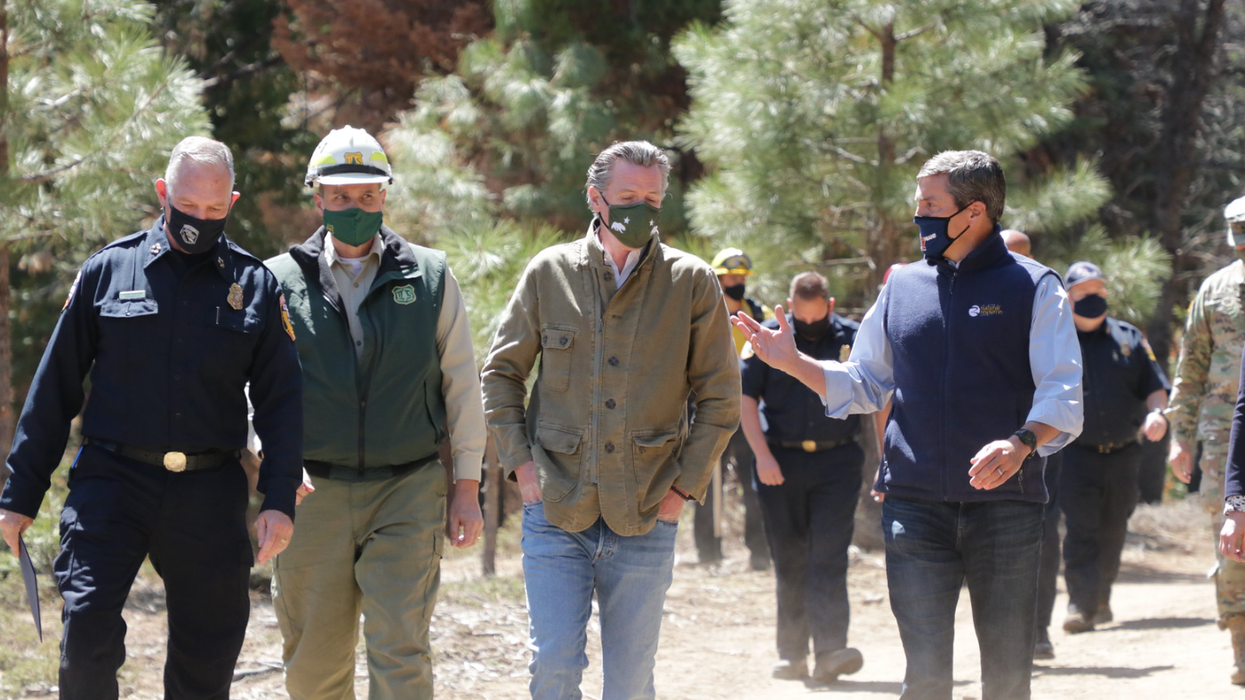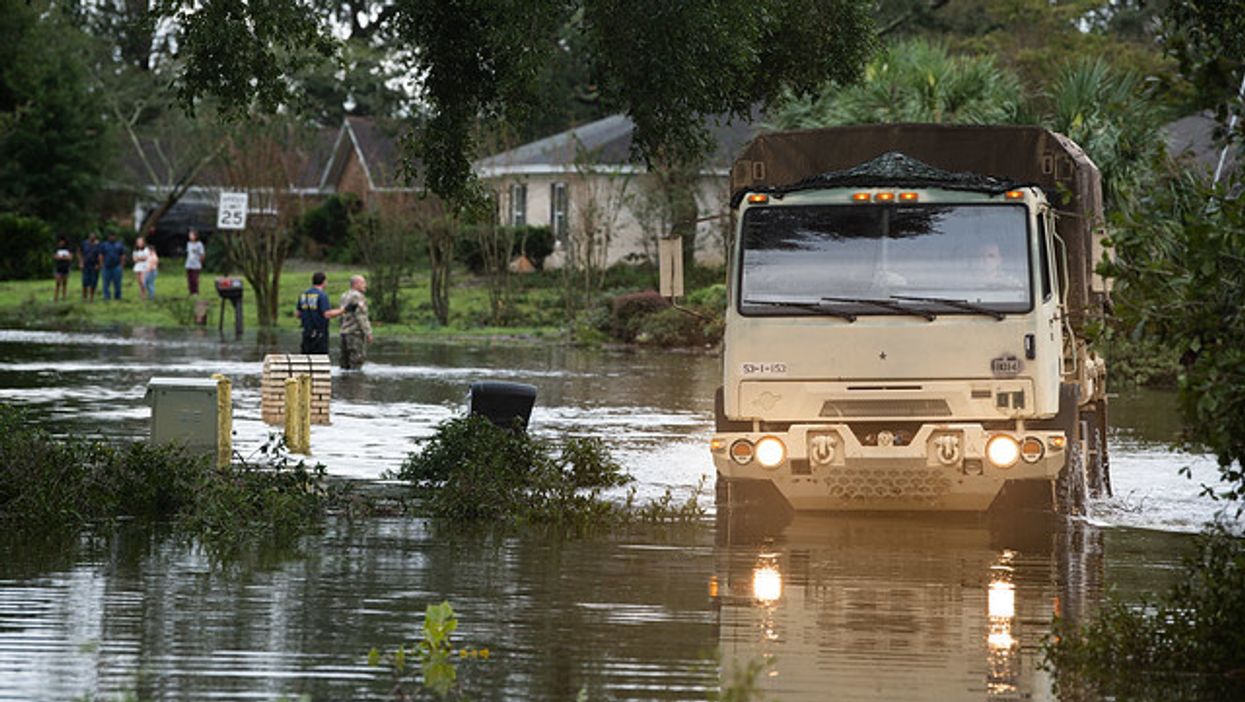How Trump And Musk Have Increased The Risk Of Catastrophic Wildfires
This story was originally published by Pro Publica
President Donald Trump and Elon Musk’s efforts to shrink the federal government, launched as the deadly Palisades and Eaton fires burned across Los Angeles, have left the country’s wildland firefighting force unprepared for the rapidly approaching wildfire season.
The administration has frozen funds, including money appropriated by Congress, and issued a deluge of orders eliminating federal employees, which has thrown agencies tasked with battling blazes into disarray as individual offices and managers struggle to interpret the directives. The uncertainty has limited training and postponed work to reduce flammable vegetation in areas vulnerable to wildfire. It has also left some firefighters with little choice but to leave the force, their colleagues said.
ProPublica spoke to a dozen firefighters and others who assist with the federal wildfire response across the country and across agencies. They described a range of immediate impacts on a workforce that was already stressed by budgetary woes predating the Trump administration. Hiring of some seasonal workers has stalled. Money for partner nonprofits that assist with fuel-reduction projects has been frozen. And crews that had traveled to support prescribed burns in Florida were turned back, while those assisting with wildfire cleanup in California faced confusion over how long they would be allowed to do that work.
“Uncertainty is at an all-time high. Morale is at an all-time low,” one federal wildland firefighter said. Multiple federal employees asked not to be named because of their fear of retribution from the White House.
In two separate lawsuits, judges issued temporary restraining orders against aspects of the White House’s broad freeze of federal spending, although the administration continues arguing that it has the authority to halt the flow of money. Some funding freezes appear to be thawing, but projects and hiring have already been severely impacted.
In one case, the freeze to Bipartisan Infrastructure Law and Inflation Reduction Act funding, combined with orders limiting travel by some federal employees, forced the National Park Service to cancel a massive prescribed burn scheduled for January and February in Everglades National Park and Big Cypress National Preserve, ProPublica has confirmed. Prescribed burns help prevent catastrophic wildfires by clearing vegetation that serves as fuel, and the meticulously planned 151,434-acre Florida fire — to cover more than six times the land area of nearby Miami — was also meant to protect a Native American reservation and improve ecological biodiversity.
“We will be more vulnerable to a catastrophic fire in the future as a result of not being able to do the prescribed burns,” a federal firefighter with direct knowledge of the situation said.
The National Park Service gave conflicting explanations for the cancellation, suggesting in a news release that weather was the cause while internally acknowledging it was due to funding, the firefighter said.
This comes as the U.S. Forest Service, which employs more than 10,000 firefighters, has been wracked by long-running deficits and a lack of support for the physical and mental health stresses inherent in the job. Federal firefighters told ProPublica they were happy to do a dangerous job, but the administration’s actions have added to uncertainty surrounding their often-seasonal employment.
A spokesperson for the Forest Service said in a statement that a major prescribed burn training program was proceeding as planned and “active management, including hazardous fuels reduction and prescribed fires, continue under other funding authorities.” The newly confirmed secretary of the U.S. Department of Agriculture will review the remainder of the agency’s spending, according to the statement. The Forest Service did not say specifically what funding the agency has available or when the freezes might be lifted.
“Protecting the people and communities we serve, as well as the infrastructure, businesses, and resources they depend on to grow and thrive, remains a top priority,” the statement said.
The White House did not respond to a request for comment.












